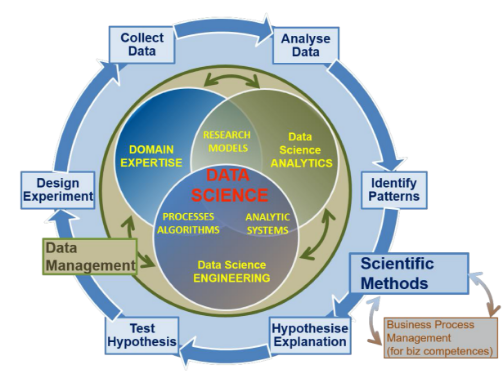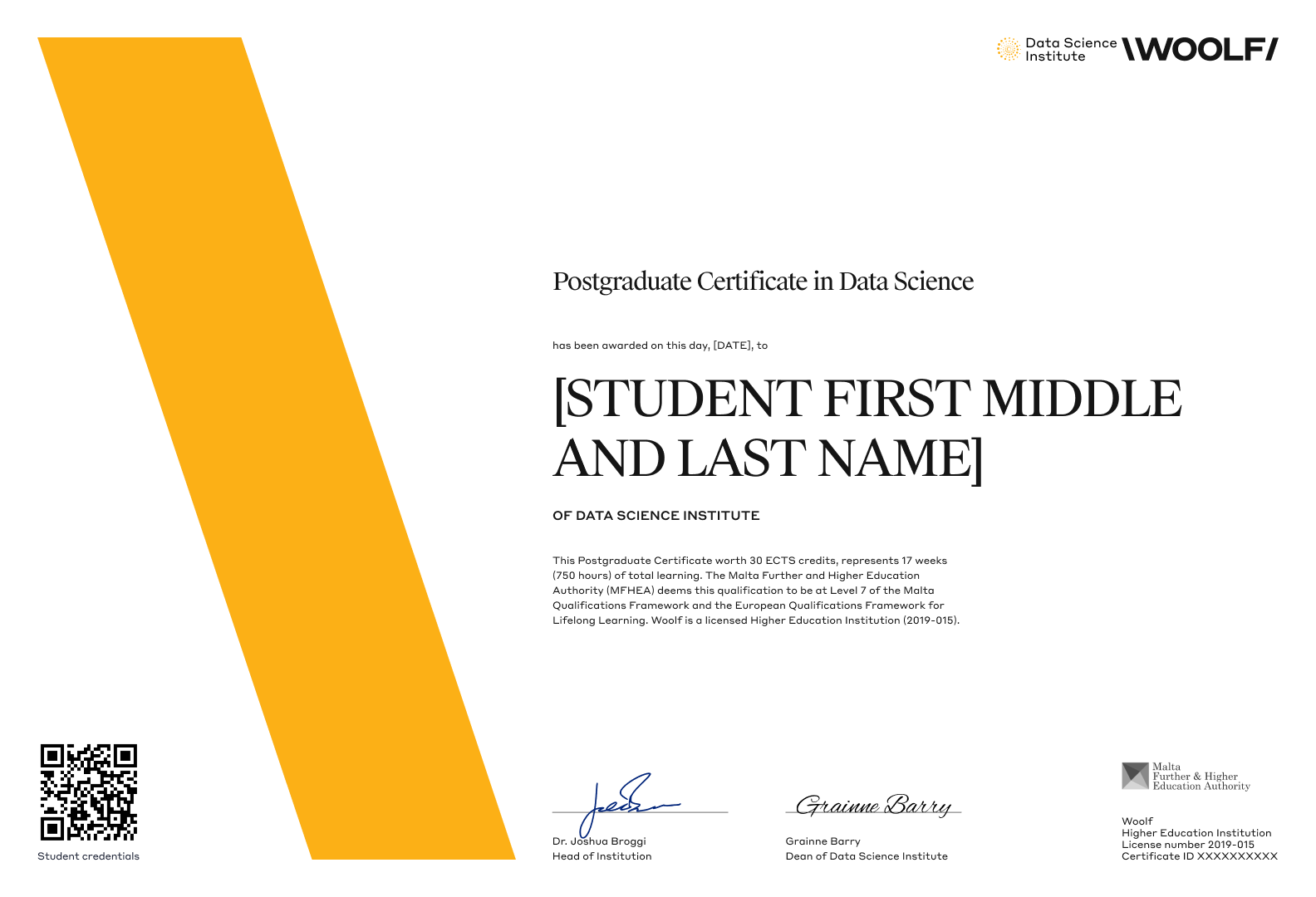COURSE MODE AND DURATION
Mode: Blended
Duration: 5 months
Duration: 5 months
COURSE FEES
Course Fees before funding
S$ 7,800
SkillsFuture / PSEA funding eligible
S$ 7,800
SkillsFuture / PSEA funding eligible
DUAL CERTIFICATION

What skills and knowledge will I gain?
The Professional Certificate in Data Science has been developed by practising data scientists with experience working with major international firms across a wide range of industries. They have identified key skills required for data analysts and data scientists and have also ensured the programme conforms to the European Data Science Framework’s Body of Knowledge.
The course is run as a dual qualification and participants can gain a postgraduate credit-rated qualification on the European Qualifications framework with 30 ECTS credits. These credits can also be used toward's the Institute's Postgraduate Diploma and MSc in Data Science.

Key Skills and Knowledge
Tools and Languages
Who is the course for?
Employment opportunites across multiple roles and industries
Programme Delivery
Fees and Funding

Find out more
Please complete this form and a member of our team will get in touch with you to explain how it works.
eiuropean accredited programme (ECTS)
Accreditation















